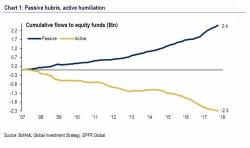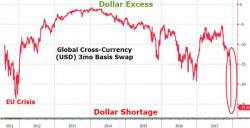The Death Of Europe's Coal Industry

Authored by Nick Cunningham via OilPrice.com,
More than half of Europe’s coal plants are already bleeding cash, but by 2030, the percentage of coal plants in Europe that report negative cash flow could explode to an estimated 97 percent.
Those findings come from a new report by the Carbon Tracker Initiative, which paints a dire picture for the economics of coal after surveying 600 power plants in Europe.


